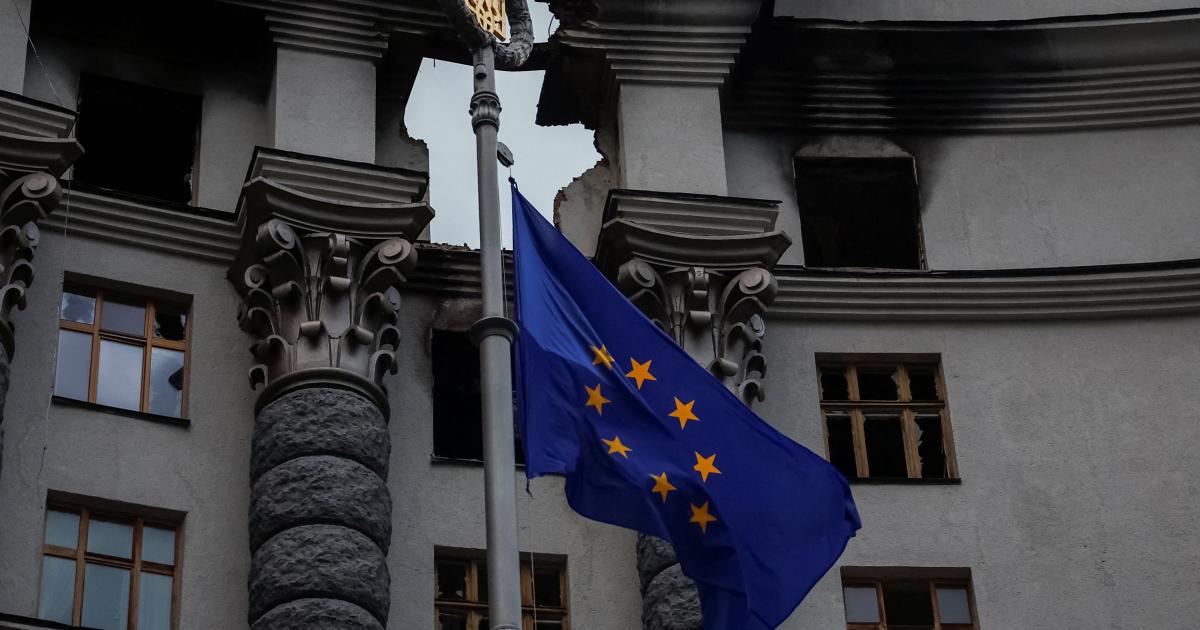
Europe’s Delayed Reckoning With Russia: A Plan to Beat the Kremlin on Its Own Terms
https://www.foreignaffairs.com/russia/europes-delayed-reckoning-russia
Posted by ForeignAffairsMag


Europe’s Delayed Reckoning With Russia: A Plan to Beat the Kremlin on Its Own Terms
https://www.foreignaffairs.com/russia/europes-delayed-reckoning-russia
Posted by ForeignAffairsMag
2 comments
[SS from essay by Veronica Anghel, Assistant Professor at the Robert Schuman Centre for Advanced Studies at the European University Institute and Visiting Professor at the College of Europe; and Sergey Radchenko, Wilson E. Schmidt Distinguished Professor at the Johns Hopkins University School of Advanced International Studies in Europe.]
In the early hours of September 10, Polish and NATO forces shot down several of the 19 Russian drones estimated to have crossed into Polish airspace—an unprecedented incursion that caused consternation and alarm throughout Europe. Russia denied responsibility, implying that the drones had simply lost their way; NATO and European officials suggested the violation was intentional. Whatever the case, the clash marked the first time that NATO engaged enemies in allied territory. A few days later, another Russian drone moved into NATO airspace, this time over Romania, although the Romanians took no action and the drone eventually crossed into Ukraine. These events underline what remains a daunting prospect for Europeans: the possibility that the grinding war of attrition in Ukraine will spill over into a broader war between Europe and Russia.
Moscow’s evident determination to keep fighting in Ukraine has fueled mounting anxiety among European leaders. Since Donald Trump’s return to office, they have twisted themselves into diplomatic contortions to implore, indulge, and flatter the American president in the hopes of sustaining the White House’s engagement with the [war in Ukraine](https://www.foreignaffairs.com/tags/war-ukraine) and of keeping Russia at bay. Yet it was Russian President Vladimir Putin—the “ogre at the door,” as French President Emmanuel Macron once called him—who strolled down a red carpet, to Trump’s applause, before a bilateral summit in Alaska in August. The Europeans, who weren’t invited, turned to damage control. The following week, European leaders flew to Washington alongside Ukrainian President Volodymyr Zelensky to offer him support and show a united front against Russia. Trump treated his guests as he might contestants on *The Apprentice*: at once effusive, then dismissive, and always uncommitted. By the dismally low standards of current transatlantic relations, the meeting was a success only for ending without incident.
It’s a pretty emotional article.
By constantly emphasizing Europe’s weakness, it suggests a magical solution to reach an agreement. However, if someone disagrees, dictatorship can be employed.
Additionally, the authors propose seizing Russia’s assets while reassuring Russian businesses that Europe is a safe haven.
Furthermore, they outline plans to undermine Russia’s human potential by relocating leading IT professionals, scientists, and doctors to Europe.
However, each of them will be closely monitored by EU officials and intelligence agencies, which will essentially be a form of house arrest.
At the same time, the authors of the article ignore the fact that there are already many people in Europe who are Russian emigrants who believed in the strength of Europe, but ended up at the bottom of society.
Their example is now being actively used by Kremlin’s media
The authors probably wanted to write something clever, but in the end, they ended up with a cloud detached from reality, which cannot be realized under the current conditions.
Comments are closed.